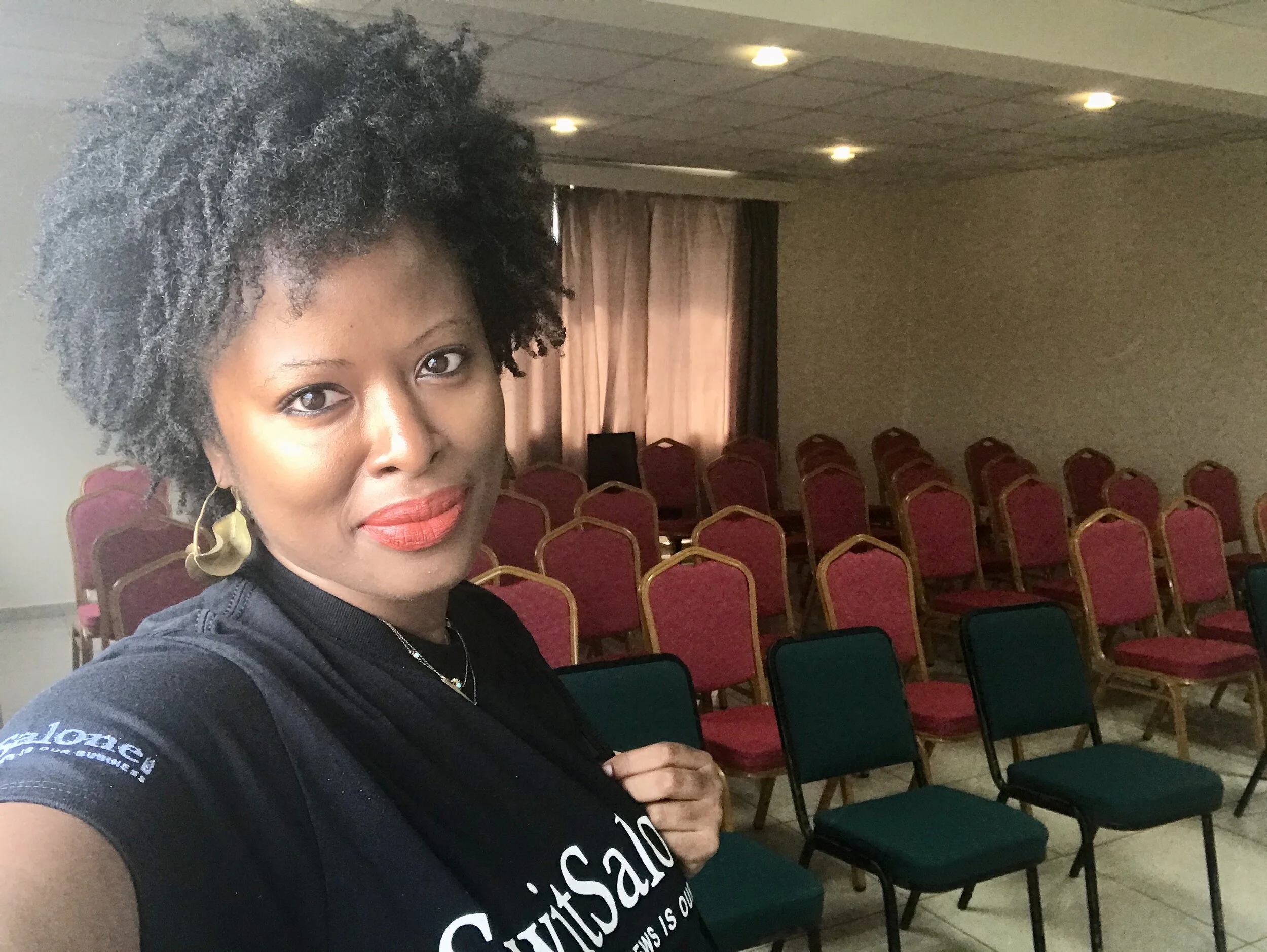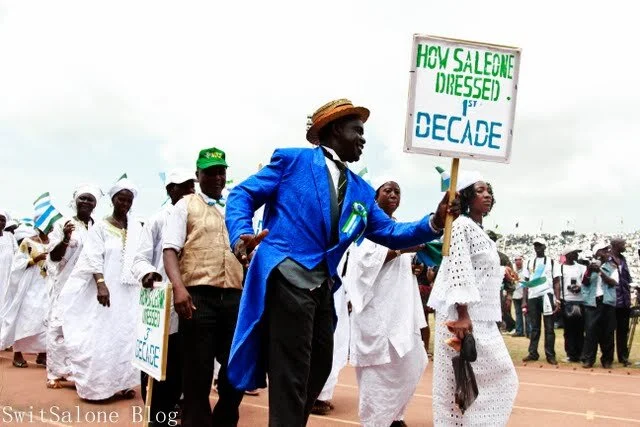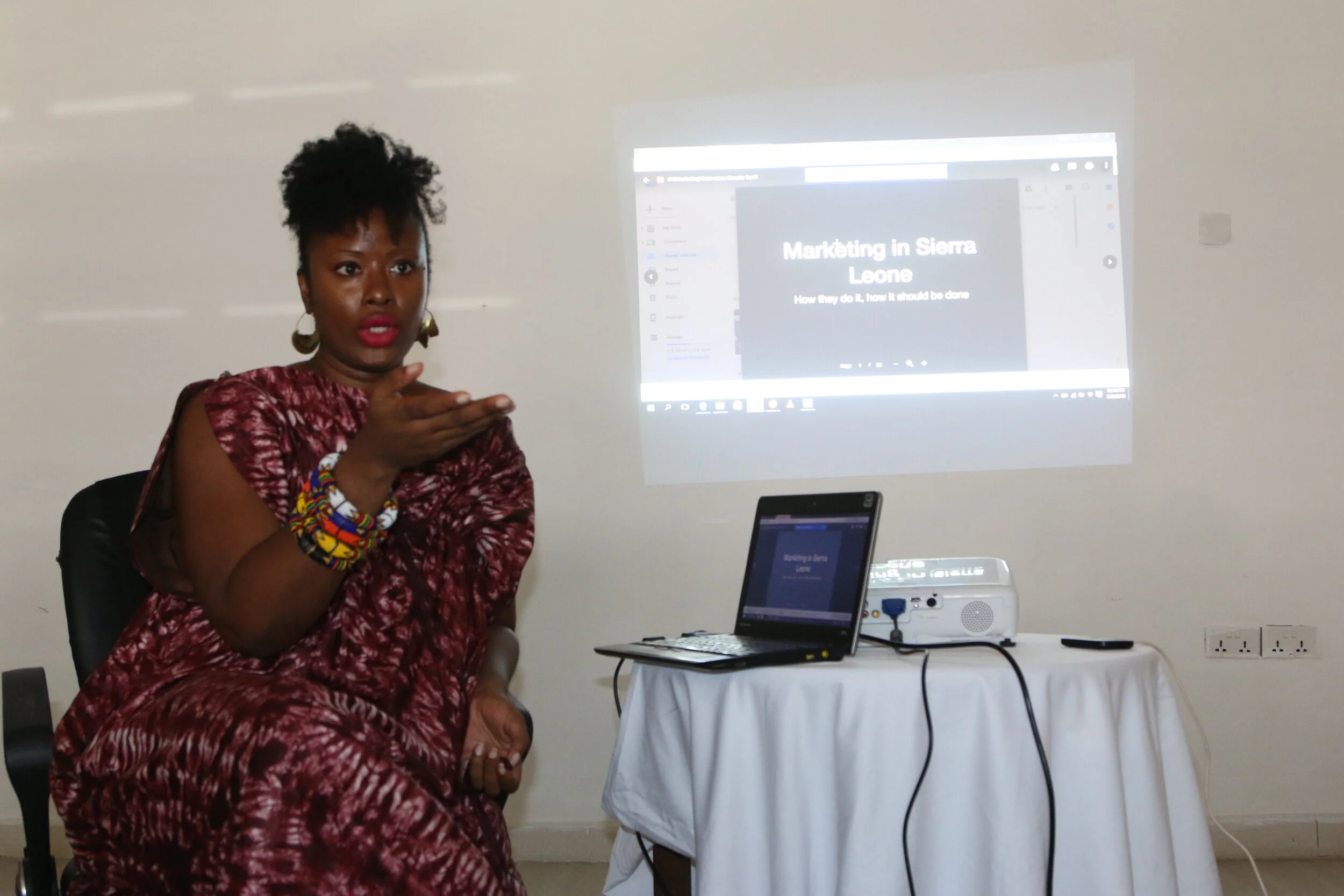A Move Back To Sierra Leone Checklist For Everyone Thinking of Returning From The Diaspora
In Harlem, Summer, 2021
According to data from IOM, some 336.000 Sierra Leoneans live in the diaspora, six out of ten live in the US, UK, and Europe. My family in the US that I spent the summer with are in this subset. They're naturalized American citizens and first-generation Sierra Leonean-Americans.
As with all immigrants, conversations about "home" no matter how long it has been (in my Uncle's case over 37 years) come up regularly, especially when someone from "home" is around. I got to speak to my family about various topics, including returning to live in Sierra Leone.
I have three uncles in the US (my mom's brothers) who have lived in the US for over three decades. I have five brothers in the US, and each one has lived in the US for more than twenty years. Of the eight men I just referenced, only one has a wife from Sierra Leone (I mention this because I think who one marries influences whether one can move back).
I can not foresee when it will make sense personally or professionally for any of my family members to move back. Their children are in America, and their jobs are not necessarily transferable. I have a brother who makes six figures in commission annually as a car salesman. I have another who is also earning the same as a nurse practitioner. My Uncles have wives who are not Sierra Leoneans, and my grandparents have died in SL. Everyone who is a close extended family to them, including our relatives who lived in the village, is in the US. One of my Uncles is an active member of NOSLINA. He also attends his Old Boys Association gatherings across the US each year.
The Sierra Leonean ties and community is so deep in the US that one can be at home with one's kin without being at home. For these people, my family, the likelihood of returning to live in Sierra Leone is next to zero. They'll visit, but they are Sierra Leonean-Americans now, with emphasis on the American.
So then, this Sierra Leone checklist is not for people like my family. Those people na only God go make dem return. This is also not for those who return because they have a presidential appointment or because their parents/spouses/children have the same. This checklist is for the wide-eyed and naive who, like me, decide to return with a romanticized ideal of wanting to make a difference. Those who return because it feels like a calling...this one is for you.
I Have A Safe Place To Stay Where I Will Be Fed & Welcome Indefinitely
The most important thing to have before you move is a place to live, either one that belongs to you or one that belongs to your parents. The location you have to live in must be one where you will never exhaust your welcome even after you no longer have dollars and pounds to spend. The house must be a house that offers you the kind of comfort that you are accustomed to, or you must be in a position to bring the comfort level of the house to the level that you need. While it is possible to find a place to rent in Sierra Leone, what makes sense price-wise doesn't come with the amenities, and those that include amenities are priced for expatriates. Renting in SL for a returnee comes with the financial burden of paying rent a year or two in advance. You may be able to afford it the first time around, but depending on the kind of salary or income, continuing to do so after a year one might stretch you. The ideal place for you is in a home where someone cooks every day whether you give chop money or not.
2. I Have A Support System of Family & Friends Who Are Invested in Your Wellbeing.
Whether you live with family or not having family back at home does not mean you have a support system. Freetown especially is a hard-knock town. Whether it is finding a job or setting up your business, you need the social network of family and friends invested in your success to cut through the barriers (of which there are many). Supportive family members are those who understand the system and can help you maneuver by taking you by the hand to see who needs to be seen to get what needs to be got. For women, a supportive family will not pimp you to local suitors (in hopes of deepening their ties to the wealthy and powerful); they will shield and protect you. The family invested in your wellbeing will listen and trust you when you say what you need.
3. I Have Something To Sell That Is In Demand In Sierra Leone or From Elsewhere
Whether you'll be selling your skills and expertise or products and services before moving, make sure you have something to sell that locals want. SL is an import market with a small manufacturing base. Over the past 15 years, manufacturing peaked at 2.5% of GDP. We don't make much. SL manufactures beverages, soap, tissue, etc. If you're going to start a business selling or making products, look for inspiration from the Indians, Lebanese, and Fulas (they have mastered small-scale manufacturing and imports). They know what is in demand. If you go into manufacturing, produce consumables, value-added agricultural products with a local/global market. While trends come and go, the one thing that is always in demand in SL is food. Everyone needs to eat; the poor and the rich. From what I've observed, the food production and foodservice industry are safe bets.
SL demands specialized professionals in accounting and finance, medicine, engineering, water and sanitation, nutrition, graphic design, multimedia production, and project management. Suppose you do not have a Master's Degree; no matter the field of expertise, you may need to rely on personal relationships to be eligible for employment. While the employers have a bias that favors returnees, you'll have difficulty finding a job with degrees in sociology, criminology, or psychology unless you have a Ph.D. in those fields. PhD-holders on any subject from any institution are in high demand in SL.
4. I Don't Have Any Underlying Medical Conditions.
There are excellent and experienced doctors in SL. However, the healthcare system is still in the post-war recovery stage, meaning it has not returned to where it used to be. There is one facility in SL that elites trust, and when I say elites, I mean those who can afford to spend several hundred dollars or thousands for care. Elsewhere, the basics like diagnostic tools, medication, and sometimes yes, oxygen are not available. Make sure you are medically cleared before you return. While you're there as much as possible, protect yourself from a severe illness. And by serious, I don't mean cholera, typhoid, and malaria; tropical diseases in SL mean serious illness.
5. I Am Open, Prepared, and Ready to Unlearn
If you happen to be a scholar who has spent several years conducting SL research, then you know SL; otherwise, you do not know it. Do not take for granted your family's norms and your personal experience as a rule. Act as though your life experience was the exception to the rule. Proceed with the same state of mind you would have if you moved to a foreign country because I guarantee the SL you left is no more. This is a new Salone, and you are a foreigner who must learn the customs, people, and social norms. You must be prepared to Unlearn what you think you know. SL (the capital city specifically) is toxic because most of its inhabitants are in a state of survival, decisions being made are short-term. If this isn't how you operate, it is going to shock you. The environment also thrives on miscommunication. People assume you're not going to verify their story, so they lie a lot. When you're newly returned, it's easy to fall for nicely crafted narratives that are mainly untrue.
##






